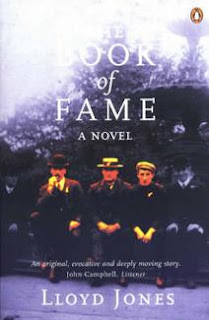 Connected: The Amazing Power of Social Networks and How They Shape Our Lives by Nicholas Christakis MD, PhD & James Fowler, PhD - (draw a breath) - is basically everything it says it is in the title.
Connected: The Amazing Power of Social Networks and How They Shape Our Lives by Nicholas Christakis MD, PhD & James Fowler, PhD - (draw a breath) - is basically everything it says it is in the title.This book was fascinating for introducing me to the obvious but in logical and reasonable ways - making what I thought (and sometimes the opposite) a rational choice or an untenable position.
A few key concepts, people don't act rationally - this we know from plenty of other books I have read in the last 33 weeks (59 seconds, Freakonomics & Sway) - but newtorks act oddly rational if you can see the wider connections.
Weaker ties can be much more beneficial than stronger ones. Cliques are exclusive and harder to penetrate, weak ones to strongly tied individuals are great for recruitment of new and also for idea and evolutionary innovation.
Positional inequality is often a better driver for success and recognition that hierarchical inequality. In HI there can be only one, a highlander style event that eliminates and isolates all but the top. In PI you can connect to people with a good HI or other trait and by distance and strength of tie you can shortcut your path to influence and recognition.
Fascinating book and a lot of ideas within will migrate to my new job. I will put it aside and note down ideas of relevance in each chapter as I gather the thoughts I had while reading this.
Next week - Philip Zimbardo needs to be finished. Or something else if that gets too depressing (the reason I have not finished it to date).



